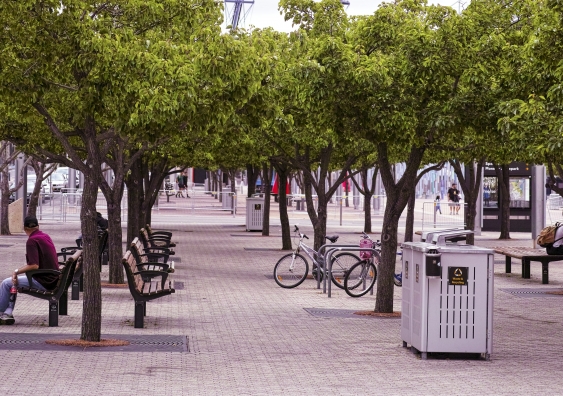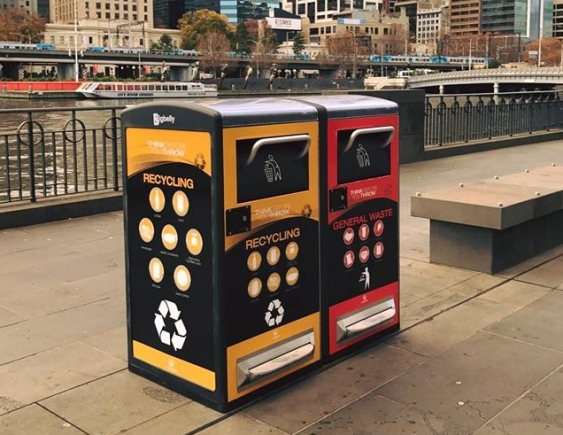As parks become backyards, smart street furniture essential
An interdisciplinary team from UNSW will give parks and urban spaces in the Georges River area a makeover as part of the federal government's Smart Cities and Suburbs Program.
An interdisciplinary team from UNSW will give parks and urban spaces in the Georges River area a makeover as part of the federal government's Smart Cities and Suburbs Program.

Public spaces in south Sydney will be transformed by urban planners and industrial designers from UNSW Sydney as part of the first federal grants awarded by the Smart Cities and Suburbs Program.
The UNSW Built Environment interdisciplinary team was awarded more than $650,000 by the Department of Prime Minister and Cabinet to work with Georges River City Council to install "responsive" technology such as smart sensors on street furniture and amenities to monitor and respond in real time to their use.
Senior Lecturer Nancy Marshall said the project, Smart Social Spaces: Smart Street Furniture Supporting Social Health, would respond to the pressures of high urban density and apartment living resulting in parks and plazas being used as urban backyards.
Marshall said the 18-month project would involve using social media and behaviour mapping to track foot traffic and movement patterns to capture data on how often public space was used.
"We are asking people to live in two-bedroom apartments with families so the need for healthy open local spaces is critical. There is so much opportunity for smart cities to improve efficiencies from council service providers so people do feel comfortable going to local parks with great facilities," Marshall said.
The team will install digital Internet of Things (IoT) sensors to measure sound, use and flow of water on picnic tables, bins, barbeques, seats, ash receptacles, bubblers and lights to get immediate data sent to the council.
"The aim is for the council to receive live messages, for example sensors on bins will detect fullness, register if ash receptacles are overheating or if a street bollard is damaged. This will help providers to know exactly which bins are ready to be emptied and when to send service teams out," Marshall said.

New-generation bins use fullness-level sensors and software to alert providers when collection is needed. Photo: Solar Bins Australia
The project's co-lead, Industrial Design Senior Lecturer Dr Christian Tietz, will design a range of public furniture prototypes for the local parks that will include cooking facilities, water, WiFi and shaded seating that asks users to log in or authorise them to use equipment via a unique identifier.
Marshall said the team will learn from the city of Tel Aviv, a hub for smart city technology that has pioneered personalised "digital cards" that give real-time notifications about what's happening in a neighbourhood and free WiFi across the city.
The project also includes Nancy Marshall, Kate Bishop, Linda Corkery, Christine Steinmetz, Susan Thompson, Miles Park and Homa Rahmat from UNSW Built Environment.